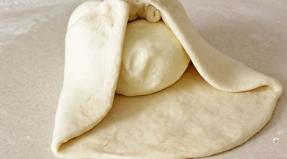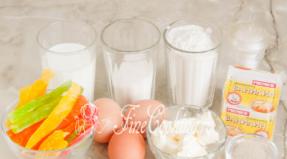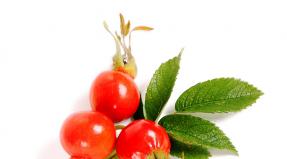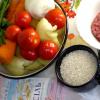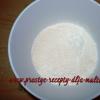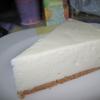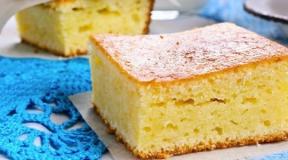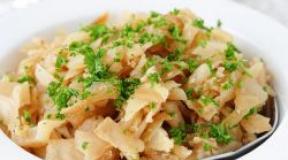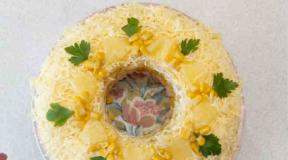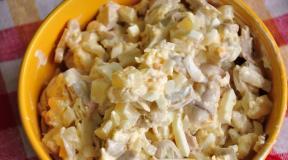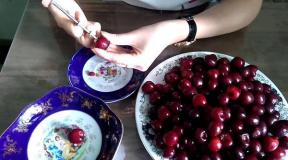What happens to the body if you drink a lot of tea every day? Women with babies. Intoxicated
Tea is the most popular drink in the world. Throughout its history, it has won even more fans than coffee. When handled correctly, tea can provide a ton of benefits. How to choose, brew and drink this wonderful aromatic drink correctly? Choosing a good tea is not easy. First of all, you should pay attention to the color.
Most black teas are ideally almost black in color, while green teas are green or green-white. Brownish brown, "rusty" color of black tea is an indicator of average or low quality... The gray color of dry tea leaves is also unacceptable for black tea. Brown tea leaves are also considered a marriage. Dry tea leaves of high quality black tea are characterized by a "spark" - a dim reflection, overflow. If the tea is dull, it is an indicator of average and poor quality. Ideally in good tea all tea leaves should be of about the same size and their size should be in accordance with international standards. Medium to poor quality dry tea leaves often contain a lot of dust and smaller tea leaves.
A common misconception is that green tea's quality indicator is its rich aroma. The aroma of tea is given only by essential oils that the manufacturer adds to it. What is sold in domestic stores is usually impregnated with artificial flavors. Chosen by you quality tea should have a pleasant, mild aroma. Basically, each type of tea has its own characteristic smell. Green tea is usually "herbal" or "bitter", black tea is "resinous-floral" or "sweet".
When choosing a good tea, be careful not to spoil its taste and beneficial properties by improper brewing. To brew tea correctly, you will have to carefully monitor the water. The process, which we are used to considering as elementary, is actually not so simple and consists of three stages. The first begins with small air bubbles slipping from the bottom of the kettle and the appearance of groups of bubbles on the surface of the water near the kettle walls. Gradually, the number of bubbles that appear in the water and burst to the surface increases. The second stage of boiling is a massive rapid rise of bubbles, which first cause a slight turbidity, and then seem to color the water in white color... This is the so-called "white key" boiling. It is short-lived and is soon replaced by the third stage - intensive boiling of water, the appearance of large bursting bubbles on the surface. For brewing, you need to catch the moment when it boils with a "white key".
Next, you should choose the utensils for brewing and determine right time, during which the aromatic drink should be infused. It is best to brew tea in porcelain, earthenware and glass teapots. Some (especially in cold weather) brew tea directly in a thermos, believing that this prevents the tea from cooling. But from constant high temperature deteriorates color, aroma and taste qualities tea.
In China, the assortment of tea ware - teapots, mugs, cups - is immense, but ceramic is preferred. Over time, the walls of the ceramic teapot become smoother: the pores of the walls fill up, and the aroma of the brewed tea becomes more and more refined. It is even believed that the use of clay teapots prolongs life, which is why they have always been highly prized among tea connoisseurs.
How long does it take to brew tea? There is the so-called rule of tea drinking: 2 minutes, 5 minutes and 6 minutes. If we drink tea after two minutes after brewing it, we get an exciting effect; after five minutes - soothing; after six minutes, all the essential oils from tea have already evaporated, and we just drink a drink with light aroma... What to choose is up to you.
The question of what to store the tea leaves is also important for maintaining the qualities of tea. Tea is highly hygroscopic, so it is stored in a glass or tin container with a hermetically sealed lid, away from strong-smelling spices. It is not recommended to store tea in wooden boxes or canvas bags, no matter how beautiful it looks. Wooden containers, like any fabric, are moisture-permeable, and moisture spoils tea and loses its aroma.
And finally, a couple of tips for tea lovers who would like to reduce their caffeine exposure. Such people should be given preference white teawhich contains the least amount of caffeine. This type of tea undergoes mild fermentation (oxidation). According to the classification according to the degree of fermentation, it ranks second after green, about 5-7% of fermentation. This type of tea got its name from the appearance of a tea bud, densely covered with white pile.
Another way to reduce the stimulating effect of tea on the body, and at the same time increase it nutritional value - add milk to the drink. Milk poured into tea in some way blocks its stimulating effect on the body. Best proportion counts one to three: a third of the cup must be filled with milk. This nutritious and invigorating combination is suitable for morning and mid-day. It is not recommended only in the evening because of the diuretic effect. In general, milk tea lovers get double benefit... Milk softens the effects of caffeine and other alkaloids, while tea tannin makes the stomach lining less susceptible to the negative effects of whole milk.
· How to drink tea correctly: first ban
Tea should not be drunk on an empty stomach or on an empty stomach. When you drinking tea on an empty stomach, you suppress gastric acid secretion and reduce the amount of acid and bile in the stomach. Tea affects the absorption of proteins and other nutrients by the body, therefore drinking tea on an empty stomach leads to loss of appetite. In principle, this is good news for those who want to lose weight, but the feeling of hunger is unlikely to go away completely and irrevocably. Better, stick to proper nutrition.
· How to drink tea correctly: the second ban
Do not drink too hot tea. Hot drink irritates the throat, gastric mucosa, esophagus, can burn the mouth. If you regularly use hot teayou harm your internal organs... Foreign studies prove that tea above 62 degrees hurts the stomach walls and provokes diseases gastrointestinal tract. Tea temperature should not be higher than 56 degrees.
· How to drink tea correctly: the third prohibition
You cannot drink iced tea.It is harmful to our body and mind. Hot tea warm the body, increase metabolism and invigorate. Cold tea on the contrary, it can provoke stagnation of cold and accumulation of phlegm.
· How to drink tea correctly: fourth prohibition
You can not drink too strong tea (chifir). Strong brewed tea contains a lot of caffeine and tannin. Large amounts of these substances can cause insomnia and headaches.
· How to drink tea correctly: the fifth prohibition
You cannot brew tea for a long time. If brewed for a long period of time, tea polyphenols and essential oils begin to oxidize, which deprives the tea of \u200b\u200bits clarity, taste, pleasant aromaalso reduces the beneficial properties of tea. If tea is brewed for a long time, vitamins C, P, amino acids and other substances are oxidized. Moreover, if tea for a long time is at room temperature, bacteria and fungi multiply in it.
· How to drink tea correctly: the sixth ban
Tea should not be brewed many times.After the third or fourth brewing time, the tea leaves are already deprived of their vitamins and nutrients... The first brewing tea draws out about 50% of all nutrients from the leaves, the second - about 30%, and the third brew - only 10%, if you go further, the fourth brew will give only 1-3% of all useful properties... If you don't stop there, then further brewing of the same tea bag (or loose tea) provoke the appearance of harmful elements.
· How to drink tea correctly: the seventh prohibition
Don't drink tea before breakfast, lunch or dinner.... Drinking a lot of tea before meals can cause saliva to thin. The food seems tasteless, and the absorption of protein by the digestive organs is temporarily reduced. It is best to drink tea 20-30 minutes before meals.

· How to drink tea correctly: the eighth prohibition
Drinking tea after meals is also not recommended.... In general, you cannot drink after a meal, and this applies to any liquid. Any drink after hearty lunch reduces the concentration of gastric juice, slows down the work of the gastrointestinal tract ... It is best to drink any drink half an hour after a meal.
· How to drink tea correctly: the ninth prohibition
· How to drink tea correctly: the tenth prohibition
You can't drink yesterday's tea. Tea, which costs a day or even more, not only loses all its beneficial properties, but also becomes an excellent breeding ground for bacteria. Yesterday's tea can be used in medicinal purposes, but only for external use. Yesterday's tea contains a lot of amino acids and fluoride. Lotions from this tea can be made to stop bleeding from the capillaries, with inflammation in the mouth, pain in the tongue, eczema, bleeding gums, skin damage, abscesses. You can wash your eyes with yesterday's tea to reduce discomfort and calm your eyes if you had to cry. You can also rinse your mouth with this tea in the morning before and after brushing your teeth, this procedure will give you fresh breath and strengthen your teeth.

Take a look at teapotwhat will you see there? If you brew the tea correctly, you will see an oily film on the surface of the liquid. But even if you brewed tea with a deviation from the canons (who ultimately established them), you will still find this film. It will not be there only in one case - if you understand tea brewing as dipping in warm water (or boiling water) sachet. The full scientific name of these packages is "filter-packages". We'll figure out what they filter later, but for now let's imagine what will happen next.
What should you do to pour yourself some tea? You lift the teapot, bring it to the cup, and tilt the spout so that it pours through the holes first into the spout, then from the spout into the cup. Stop! Where is the film? In the cup there is a transparent layer of tea leaves of your favorite color and shade. Maybe the film has dissolved? No, here it is, inside the teapot - it is a little smeared on the walls, but mostly it lies on top of the tea leaves, at the bottom - as it should be, settled, giving away all the most valuable tea leaves in the drink. And what is valuable in tea besides color? Taste. They also constantly talk about the benefits of tannins, some essential oils…
Here it is. This film is the very wonderful essential oils that have passed from tea leaves into boiling water, and then just floated up. Now the advice is clear: add boiling water to the kettle after a certain period of time. A new jet will break and mix the film that has begun to form and draw out new portions of color and taste from the tea leaves. But even after topping up, you will not be able to drive the film into the cup using a common teapot - the tea will enter the spout from the middle layer of the infusion, and the surface tension forces will keep the film on the walls of the teapot.
Of course there is a way out - to pour the tea leaves over the edge without using a specially attached spout, but this is inconvenient and irrational. Or maybe you can think of something?
Once, in a time of total scarcity, I came across a German tea and coffee set, with two coffee pots, as it might seem at first glance. Both the large and small "coffee pots" had a high-set spout, which gave the entire set an innovative design style. And then I saw a film of tannins in the cup, or rather not a film, but a haze. I forgot to say that in addition to the high-located entrance to the spout, this kettle (the kettle, not the coffee pot) had no holes and the tea leaves turned when tilted 90 degrees, with the film in front and the tea leaves far behind. Now teapots of this design are Chinese, in the form of an eagle or simpler.
The tea drink, when properly formulated, is good for health, especially for the heart. Exists a large number of types and varieties of tea, but in Russia ...

And what about filter bags? Never a single packet, even the thinnest one, will miss a single molecule of tannins, they have such a task. Everyone can be convinced of this by comparing the "batch" and in the usual way - pouring the contents of the package into the teapot.
Conclusions to make you. If you are in a hurry, what kind of ceremony can there be ... To find the answer to your question, use the form -
- Bone destruction
Strongly brewed black tea contains a high concentration of fluoride, which, when consumed in excess, breaks down calcium compounds. Suffers in the first place tooth enamel, teeth turn yellow, caries occurs. The risk of developing skeletal disease increases. fluorosis and osteoporosis - excessive bone fragility. Therefore, do not overuse the brewing during preparation and leave the drink for no more than 3-5 minutes. - Yellow teeth
Look at your cup: if there is a coating on its walls, it is better to refuse the tea that was brewed in it. After all, plaque stains not only the snow-white surface of the mug, but also the enamel of your teeth! Most often this applies to cheap tea bags, it can contain not only dyes and flavorings, but also low-quality tea leaves. © DepositPhotos
© DepositPhotos - Heavy metals
In 2013, the results of a study on tea bags were published in the Canadian Journal of Toxicology different manufacturers... In all samples, toxicologists found lead, aluminum, arsenic and cadmium! Heavy metals enter the plant from contaminated soil, and their concentration directly depends on brewing. Maximum amount toxic substances are released into tea, if it is brewed for 15-17 minutes.Do not infuse the drink for more than 3 minutes. It is better to give preference to white tea, the leaves of which do not have time to accumulate harmful substances, because they are collected young.
 © DepositPhotos
© DepositPhotos - Nose bleed
The habit of drinking tea-boiling water can have a bad effect on the vessels of the nasopharynx and provoke bleeding. Regular use hot food and drinks destroys the walls of the esophagus, and in places of burns often occur cancerous tumors... To obtain optimal temperature tea (50-60 °), no need to wait long. Let it brew for 5-7 minutes and the drink is ready. © DepositPhotos
© DepositPhotos - Insomnia
When asked whether doctors answer in the affirmative: "No way!" Caffeine and essential oils increase heart rate and pulse, speed up blood flow, the adrenal glands release more adrenaline, and the central nervous system and brain become agitated. In the evening, it is better to refrain from all types of tea and coffee, limiting ourselves to herbal drinks. © DepositPhotos
© DepositPhotos - Neutralizes the effect of drugs
When you are sick and have a temperature, you should not get carried away strong tea... It contains theophylline, which has a diuretic effect and reduces the effectiveness antipyretic drugs... You can not drink tea with nitrogen-containing drugs ("Papaverine", "Codeine", "Caffeine", "Euphyllin", cardiac glycosides and others). They form a sludge when they interact with tea tannins and can be bad for the heart. © DepositPhotos
© DepositPhotos - Iron-deficiency anemia
Back in 2011, American scientists found that tea blocks the absorption of iron. Regular consumption of tea with meals provokes iron deficiency anemia with unpleasant consequences. The condition of the skin and hair is deteriorating, the person feels lethargy and fatigue. Do not overuse tea for breakfast, lunch and dinner. It is recommended to wait 20 minutes before or after eating.To normalize iron levelsit is not enough to give up the drink. You need to take special medications that your doctor prescribes.
 © DepositPhotos
© DepositPhotos - Is it possible for pregnant green tea?
During pregnancy, it is better to refrain from drinking drinks that contain caffeine. According to Japanese studies, 5 cups of green tea a day leads to underweight in newborns. In addition, having a pronounced diuretic effect, tea increases the burden on the mother's kidneys.Green tea decreases absorption efficiency folic acid... And she is one of essential elementsnecessary for the correct development of the child! It is better to limit the use of tea during pregnancy, optimally - no more than 2 cups a day.
 © DepositPhotos
© DepositPhotosLike many herbal teas, tea leaves can accumulate pyrrolizidine alkaloids - toxins vegetable origin... In 86% of samples herbal preparations for children, pregnant and lactating women have been found these substances. For healthy person they are not dangerous. Unborn babies and low birthweight babies are at risk breastfeedingto which toxins come from the mother.
 © DepositPhotos
© DepositPhotos
Julia Vern 2 084 0
Tea, as a medicinal drink, originated in China and has a long history, as well as an equally long list of beneficial properties for the body. Nonetheless, misuse this drink may cause physical discomfort and negative consequences for good health. So, quick reference about how not to drink tea.
The traditions of making tea and, in fact, tea drinking have been practiced for over a thousand years, and there are reasons for this. Indeed, a cup of tea can relieve morning sickness or energize a productive workflow. But for some people who have certain kinds of health problems, the drink can become potentially harmful. In this case, tea is best avoided.
Patients with neurasthenia
For people suffering from neurasthenia, strong tea will definitely not be beneficial (especially in the afternoon and even more so before bed) - due to the high enough caffeine content in tea leaves, the drink can affect sleep. Better to drink flower tea in the morning, in the afternoon - green, and before going to bed, drink decaf tea. It is worth noting that there is no tea at all without caffeine, some of it, albeit minimal, is contained in the drink, so people with special sensitivity should pay attention to fruit or herbal infusions.
Women with babies
During breastfeeding, women should refrain from drinking strong tea, since the caffeine contained in it passes into milk and can interfere with the child's restful sleep, make him restless. With an increase in the amount of caffeine in milk, the infant's sleep pattern may be disrupted, up to the inability to fall asleep.
Patients with stomach ulcers
For those who suffer from stomach ulcers, good advice will avoid tea that contains caffeine because it promotes gastric acid secretion. Stomach acid can aggravate the symptoms of a stomach ulcer or interfere with the healing process.
Intoxicated
Strong tea is able to make human body excitable and negatively affect the cardiovascular, as well as nervous system... If a person is drunk, too strong drink can cause cardiac arrhythmias and swelling blood pressure, increase the burden on the kidneys.

Elderly people
Raw (aka "green" pu-erh, or "Sher Pu-erh") tea is not recommended for the elderly. Most of the compounds found in fresh tea leaves are not eliminated during fermentation (due to special way processing) and this gives a strong specific aroma that can cause stomach discomfort in the elderly.
Circumstances under which tea should be said no
Drinking tea on an empty stomach
It is not uncommon for people who drink green tea to suffer from nausea or an upset stomach. Most likely, these sensations come if in the morning on an empty stomach a person first of all drinks a cup of their favorite drink.
The culprits of unpleasant sensations are tannins (they are also tannins) of green tea, which stimulate the stomach to secrete more acid.
For those suffering from ulcers or heartburn, this is a particular problem. Moreover, it can also lead to "tea intoxication". Some people compare it to a strong caffeine rumble, side effects which include unsteadiness, nausea, severe dizziness and other discomfort associated with excessive consumption of caffeine (in such cases, it is recommended to drink fruit juice or sweet water). The solution is not to drink tea on an empty stomach.
Drinking tea before or after meals
Everyone is probably familiar with the habit of drinking tea after meals, but not everyone knows that from the point of view of a qualified nutritionist, this is unhealthy. The thing is that drinking tea immediately after a meal (within 20 minutes) limits the absorption of iron (Fe) by the body from food. That is, if after eating, you immediately pour yourself a cup of your favorite drink, your body will not be able to fully use the iron from the meat you just eaten. This is because the tannins in tea form a bond with iron, negatively affecting the body's ability to absorb this important mineral.

Drinking tea before bed
Tea leaves contain caffeine that helps keep you awake, which is why if healthy sleep is important to you, it is advisable to limit your tea intake before bed, this is especially true for fresh green tea. However, this is very individual, depending on both the preferred type of tea and personal sensitivity to caffeine.
Love for "Geye Cha"
“Geye Cha” - the tea brewed the day before, has managed to acquire just an indecent amount of all kinds of legends and tales. He helps to lose weight, and prevents cancer, and what just does not. In fact, from too long infusion, most of the vitamins were lost and the degree of usefulness of the drink, contrary to popular belief, is infinitely small.
How not to drink tea
Brew tea in a thermal cup
As you know, a good cup of tea starts with good water. But the cup itself is also not the last thing. The best choice there will be ceramic cups or bowls, but by no means an airtight vessel. As a rule, if tea is brewed in a thermal cup, then it is not drunk immediately, but from long-term storage not only the taste of the drink deteriorates, but the amount of nutrients and nutrients decreases.

Too long brewing process
How long do you keep the tea leaves in the cup to get the perfect drink? They say that a good thing takes more time, but when it comes to tea it primarily depends on which variety you drink and your personal tastes, there is no exact time frame. If it's rough, then optimal time - 4-6 minutes, with experience you will be able to determine readiness by color shade.
Important!
But it is not recommended to brew for more than 20 minutes, prolonged stay of tea leaves in hot water destroys beneficial compounds and can have negative health effects.
Drinking tea leaves
Previously, people disposed of the leftover tea leaves, believing that it could be used only once, although this is not the case for many varieties. Many Chinese people eat delicate leaves brewed tea, as they believe that it will benefit their body. Some people have started following the example of the Chinese, but if you have stomach ulcers or heart problems, you should not eat green tea leaves. And if you are pregnant or breastfeeding, it is better to first consult with your doctor before such experiments.
Strong tea addiction
Most of the minerals in tea leaves are water soluble, so too many leaves in one cup will release excess caffeine and tannic acid. These compounds will darken the color and taste more bitter, and can be detrimental to your health, so drinking too much strong tea is not recommended.
Additional Information
Price and quality
There is a common misconception - to think that only expensive tea can be good, but in most cases the price depends on two factors - quality and variety. The quality of tea is usually determined by its origin and type. For example, the quality of West Lake Long Jing is related to the time it was harvested and harvested, as well as what parts of the tea plant were harvested. A kidney, a bud with one leaf, and a kidney with two leaves can produce big difference in value, even if they are all sourced from the same tree at some point. But all of them, without exception, are highly valued in the market. Thus, we can say that everyone will receive their best tea, depending on personal taste and budget. Quality and taste are two things to think about first when entering a tea store, not the high price. Some of the so-called high-class varieties were harvested too early, when the buds of the tea plant had not yet formed. Nutrients not so much has entered the embryo, therefore, from a quality point of view, these varieties are somewhat dubious.

Drinking tea and "tea" thinking
In China, there are two points of view about tea, one sees it as a drink that can quench your thirst, a kind of daily necessity. The second, rather, refers to tea drinking as a kind of mental activity that includes tea in philosophy, ethics, morality, introspection and the spirit of pleasure. Aimed at hardworking middle-aged people, this philosophy helps them find in the cup aromatic drink relieve anxiety and anxiety, energize and clear the mind.
